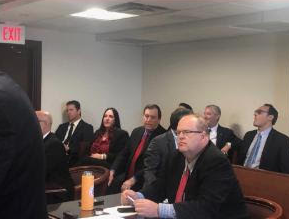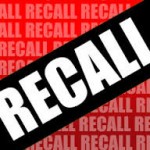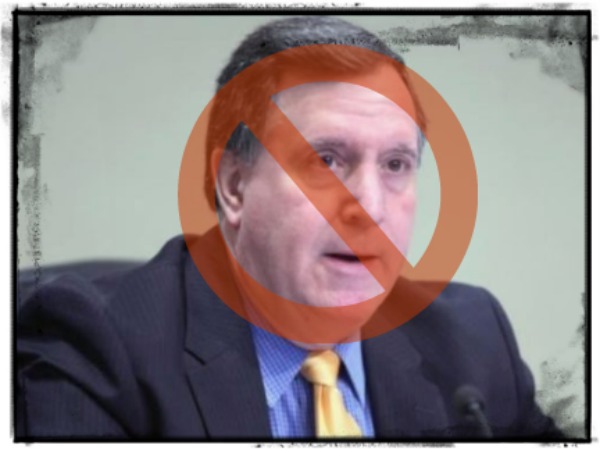Miami city attorneys lost their final appeal Wednesday against the effort to recall Commissioner Joe Carollo, and the city could be forced to turn the 1,900 plus petitions to the Miami-Dade Supervisor of Elections as early as Thursday.
The Third District Court of Appeals denied the request by the city and Carollo’s attorney, Ben Kuehne, to get a new hearing in front of the entire bench in a terse, one paragraph decision with no details, no reason.
You may not pass go. You may not collect $200.
“This is the end of the road for these guys with this appeal, and the petitions will be sent over to the county and this  recall can fire up,” said David Winker, one of the attorneys for the Take Back Our City political action committee that submitted the petitions to the city in March.
recall can fire up,” said David Winker, one of the attorneys for the Take Back Our City political action committee that submitted the petitions to the city in March.
“I’m very pleased that we are done with these ridiculous appeals,” Winker said.
The legal challenge was made by the Take Back PAC after the city refused to turn over the petitions to the county the day they got them from the PAC. Their position was that the petitions were filed late — after they worked like contortionists to create a false deadline, calling their research a “recall cheat sheet” — and refused to let the recall move forward. The PAC had to file a writ of mandamus to force the city to turn the petitions over. And they won their first court battle when Miami-Dade Circuit Court Judge Alan Fine said that the city, and particularly City Clerk Todd Hannon, did not have the jurisdiction or authority to decide that the petitions were late, that it was simply a “ministerial duty” to receive and forward them. He ordered the 1,900-plus signatures to be sent to the county.
Read related: Joe Carollo recall effort wins another court round vs Miami city attorneys
But the city appealed the decision to the Third District Court of Appeals, which ruled against Carollo late last month, upholding the lower court’s decision.
“The plain and obvious meaning of the language of this statute requires the clerk ‘immediately after the filing of the  petition forms’ to ‘submit such forms to the county supervisor of elections.’ The language confers no discretion on the clerk to review the recall petition for facial or legal sufficiency,” wrote Judge Thomas Logue for the panel, which also included judges Fleur Lobree and Eric Hendon.
petition forms’ to ‘submit such forms to the county supervisor of elections.’ The language confers no discretion on the clerk to review the recall petition for facial or legal sufficiency,” wrote Judge Thomas Logue for the panel, which also included judges Fleur Lobree and Eric Hendon.
“The use of the word ‘shall’ only reinforces that the clerk’s responsibility in this regard is ministerial,” Logue wrote.
Exactly what the PAC attorneys, Winker and former State Rep. JC Planas, have argued over and over again.
On June 10th, Kuehne and the city appealed the panel’s decision. The 14-page motion for a rehearing is almost incomprehensible and me thinks Ben is losing his touch or his mind. The arguments made are (1) the same arguments the city attorneys already made, which failed by epic proportions or (2) the same arguments made by the recall attorneys, that the Florida legislature intended in the law’s language to make recall procedures uniform statewide.
Nana nina, said the judges. And it’s hard to believe that it took more than two weeks to give them that answer.
Read related: Recall Joe Carollo lawyers win first round in court, city attorney appeals
Winker said that this puts the kibosh on the legal challenges to the recall effort, which is based on Carollo’s harassment  of a Little Havana businessman and PaellaGate, where he used city funds and resources to help campaign for buddy Alex Diaz de la Portilla, who was then running for county commission. But Ladra is not so sure.
of a Little Havana businessman and PaellaGate, where he used city funds and resources to help campaign for buddy Alex Diaz de la Portilla, who was then running for county commission. But Ladra is not so sure.
Kuehne and City Attorney “Tricky Vicky” Mendez can still and have hinted they will bring other challenges about the petitions — that collectors were paid to gather them and that the wording was not translated for Spanish-speaking voters, among them. But those challenges can’t stop the process and might have to be made by Kuehne, not the city at taxpayer expense.
Judge Fine, the first circuit court judge on the case, sent an email to the interested parties on Wednesday saying he was available Thursday afternoon for a virtual hearing on the emergency motion filed by the recall attorneys to enforce the writ of mandamus, which mandates the petitions are turned over.
Once the county has them, they have 30 days to verify the signatures and ensure that the procedures for the recall were followed. Once the petitions are verified, Carollo has ten days to provide a response that will then be printed on a second petition. The people behind the recall can start collecting signatures again on that second petition. They need almost three times as many, or close to 4,800, to get the recall on the November ballot.
Read related: Miami city attorneys conspired, created ‘cheat sheet’ to stop Joe Carollo recall
The county probably won’t take 30 days to verify the recall petitions. Carollo will probably take all 10 days to write a limited response. It’s hard for him to edit himself.
The recall attorneys argued in court that the appeal court decision’s appeal was a fraud intentionally filed at the 11th  hour. “The timing is not coincidental nor is the posture of this case. Appellant is attempting to delay the proceedings as long as possible for his own political benefit,” they said in the response to the motion for a rehearing.
hour. “The timing is not coincidental nor is the posture of this case. Appellant is attempting to delay the proceedings as long as possible for his own political benefit,” they said in the response to the motion for a rehearing.
But really, the delay worked for the recall group because it was unlikely that they would have been able to get the required number of signatures in the required window of time when voters were afraid to open the door or talk to strangers or touch anything like a ball point pen due to the COVID19 crisis.
“They didn’t want to be out there collecting signatures in the middle of a pandemic,” Winker said. “This was truly a case of Carollo cutting off his nose to spite his face.”
Again. Carollo likes to do that. Ladra is not sure how much nose he has left.

